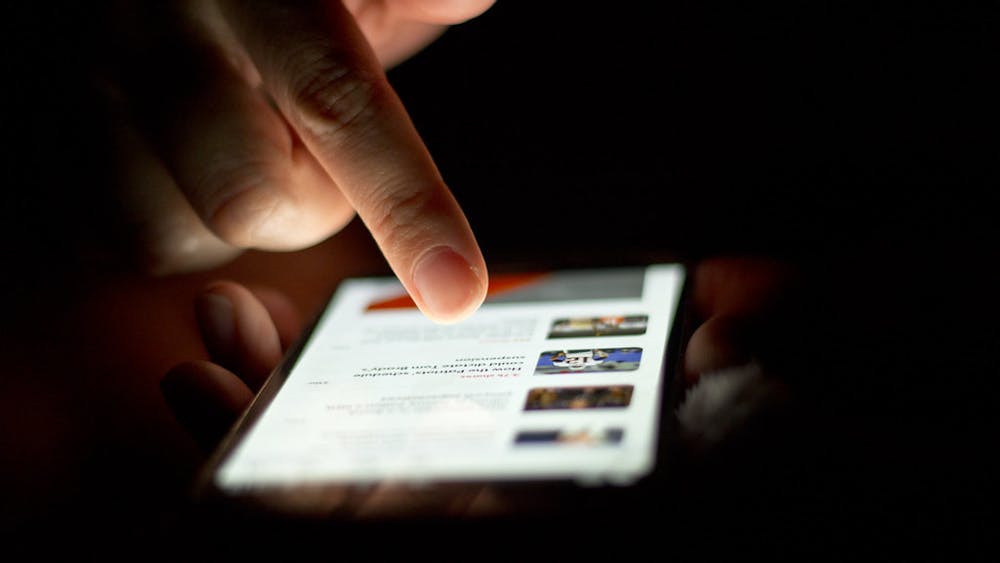In compliance with an executive order by Governor Glenn Youngkin, University employees — including student workers and representatives of special status organizations — may no longer access several Chinese-owned apps, including TikTok and WeChat, on their University-issued devices or University networks. The University policy does not prohibit other student use of the apps. This state ban mirrors moves made by several other states — all of which have cited concerns about data privacy or national security. If these apps do pose a threat to national security, then this ban is not the solution — policymakers must acknowledge the ineffectiveness of this new law and take practical steps to tackle the larger issue of American data security.
Let us be upfront — the University policy will have little influence on student behavior. Take TikTok, the popular social media platform largely owned by the Chinese company ByteDance. Students have already pointed out that TikTok’s user-friendly interface is leveraged for educational and professional purposes. Several student organizations and even University faculty members use TikTok to create engaging content that makes critical information easily accessible. Some students use WeChat — another one of the banned apps — as their primary means of communication with family members both locally and internationally. These platforms have become deeply embedded in University life — simply banning people from accessing these apps on work phones and eduroam will not stop them from logging on from their personal devices using cellular service.
This reality highlights the futility of policies like the one Youngkin is forcing on Virginians. It is true that TikTok, like other social media apps, collects data from its users — everything from a user’s phone number to their browser history. However, banning the use of TikTok on government-issued devices and government networks does little to actually promote data security. Sensitive information, like personal health records, exists on University-issued devices — but this information also exists on personal devices unaffected by this government mandate. The new policy simply fails in any effort to protect Virginians from Youngkin’s fear of foreign data collection.
It isn’t bad enough that Youngkin is crafting meaningless mandates — he is also forcing the University to act as the enforcer of his efforts to ensure his own simplistic conceptualization of national security. It is completely unclear what this will look like in practice. Will the University increase efforts to monitor students, faculty and staff? In what ways? How will this monitoring impact the amount of personal information our own government has access to? What penalties will the University impose on people who are found to have violated this new policy? Leadership at the University doesn’t even seem to have the answers to this question, and we deserve more detailed guidance on what this policy will look like in action. The TikTok ban may not be the University’s fault, but it is certainly their problem.
We must also acknowledge the trend of using national security rhetoric to justify excluding and targeting certain nations’ businesses and people. During the pandemic, policy aimed at protecting the American people contributed to a rise in hostility and violence against Asian Americans. We worry that this ban has a similar potential. The University must take care to ensure that this policy does not snowball into a vehicle promoting discrimination amongst Asian-American communities.
Simply put, Youngkin's mandate is anything but helpful. It will not do what it's meant to do, especially at the University. Legislators can steer this conversation in a more productive direction by considering what educators can do to help students keep up with the pace that technology has infiltrated our lives. Perhaps the state government could require enhanced data safety training for students, which could provide more information on how to manage or minimize the information companies are able to collect from users. It is also past time for policymakers to pass legislation that regulates the amount and kind of data that all companies are able to collect. Not only would this promote national security by limiting the amount of data that companies are able to collect, but it would also underscore the notion that effective policy is crafted to protect people. Virginians deserve policy that genuinely promotes data security — not half-baked solutions that are more political than they are practical.
The Cavalier Daily Editorial Board is composed of the Executive Editor, the Editor-in-Chief, the two Opinion Editors, their Senior Associates and an Opinion Columnist. The board can be reached at eb@cavalierdaily.com.







